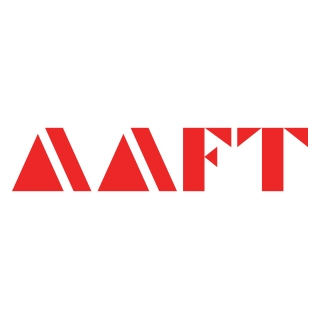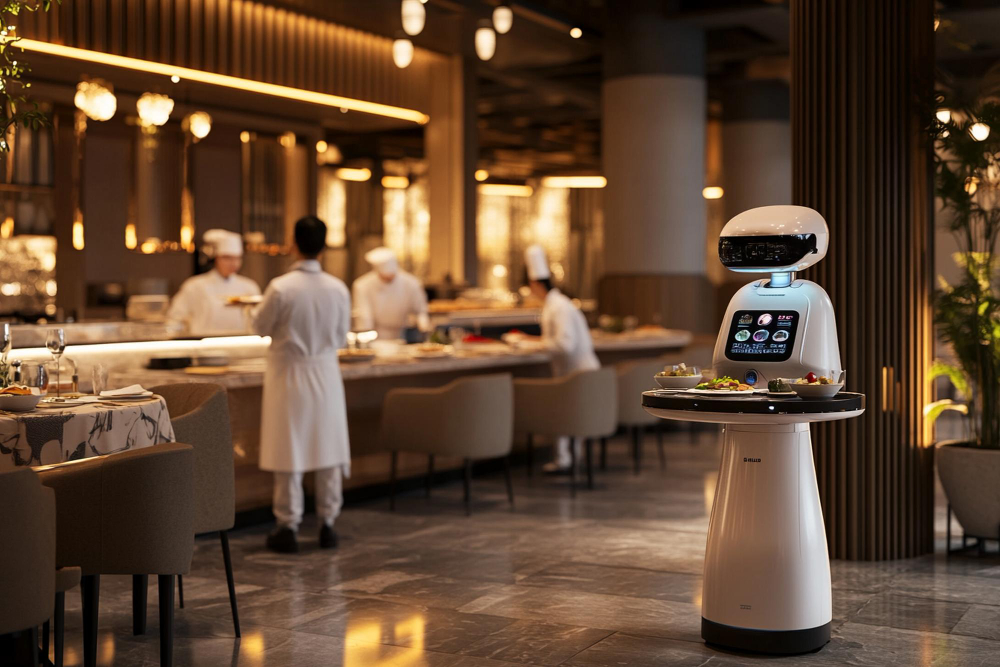AI & Automation: Reshaping Hospitality and Tourism Jobs
The hospitality industry has always been personal and built on attentive services. So naturally, the idea of technology disrupting such a people-centric space seems far-fetched, right? But not anymore. The travel and tourism management industry is being rapidly transformed by AI and automation, hence naturally poses a big question of whether hotel jobs will vanish, or will they evolve into something new?
The answer, though, is simple and lies in being prepared for the shift, to adapt in this tech-driven, hybrid future.
How Technology is Reshaping the Hospitality Industry?
Knowing how AI works in real-world jobs can give you a serious advantage, as companies want professionals who understand both customer service and technology. These are the few technological innovations that hotels nowadays are adapting to.
- Inclusion of AI
With AI simplifying our everyday lives, it has now even taken a step and entered the hospitality industry, as now you do not even have to interact with the front office desk, and check in directly in a hotel. Some hotels are also adopting dynamic pricing systems, similar to how airlines work, to change room prices in real time based on demand, season, or guest behavior.
Do you want free career counseling?
Ignite Your Ambitions- Seize the Opportunity for a Free Career Counseling Session.
- 30+ Years in Education
- 250+ Faculties
- 30K+ Alumni Network
- 10th in World Ranking
- 1000+ Celebrity
- 120+ Countries Students Enrolled
Example – Hilton’s Connected Room technology
This shift shows how hotel management courses today must include tech awareness to stay relevant. Explore AAFT’s School of Hospitality & Tourism’s industry-aligned courses today!
- Digital Concierges
With modern technologies, both users and hoteliers seek a seamless service experience. As a result, hotels are now integrating digital concierges to assist guests with minute requests, provide travel insights, and streamline the check-in and check-out process. Adding to the innovation, predictive analytics is helping hotels understand what guests might want before they even ask, like offering room upgrades based on previous stays or suggesting meal plans aligned with guest preferences.
Book Now →
Example – Marriott and AccorHotels use AI-powered chatbots
- Robotics
Food is no longer just an art crafted solely by humans. With the rise of high-functionality robots, machines are now frequently seen in kitchens, preparing various delicacies.
Example – In the food industry, Miso Robotics’ Flippy, a robotic kitchen assistant, is already flipping burgers and managing fryers in fast-food chains like White Castle.
- Automation
Luxury hotels are introducing voice-controlled smart rooms where guests can adjust lights, temperature, or music through AI systems.
Do you want free career counseling?
Ignite Your Ambitions- Seize the Opportunity for a Free Career Counseling Session.Example – Hotels like Yotel and Henn na Hotel in Japan use robotic luggage handlers and facial recognition check-ins.
Which Roles are Fading Out?
- Front Desk Executives are being replaced by self-service kiosks and mobile check-ins.
- Manual Concierges are becoming digital with AI chatbots and voice assistants.
- Line Cooks in fast food chains are getting automated with robotic kitchen assistants.
- Housekeeping Staff are seeing automation in areas like floor-cleaning and linen delivery.
- Reservation Agents are being replaced by smart booking systems that handle everything from dynamic pricing to customer preferences.
Emerging Roles in the Industry
New types of jobs are being created that require tech skills with the essence of the human touch.
- Guest Experience Managers
They are required to use data to create hyper-personalized stays.
- Digital Concierge Coordinators
These professionals manage AI-based guest services.
- Culinary Automation Experts
These professionals operate smart kitchen tech to maintain food quality and innovation (suitable especially for professionals with a background in culinary arts).
- Smart Housekeeping Supervisors
They manage robots and sensors to keep rooms spotless and efficient.
- AI Workflow Coordinators in hotels
They ensure tech systems run smoothly and enhance guest service.

Must-Have Skills for Hospitality Professionals in 2025
| Skills | Why it matters |
| Emotional Intelligence (Understanding how others feel and responding nicely) | Emotional intelligence helps in handling guest issues, teamwork, and providing a warm experience |
| Systems Thinking (Seeing how different parts of a hotel work together) | Systems thinking aids in problem-solving and improving guest services |
| Data Interpretation (Reading and understanding numbers, charts, or guest feedback) | Many hotels use guest data now as it helps in personalising experiences |
| Communication Skills (Talking and listening clearly) | Communication skills still remain the most important skill in the hospitality world, even in the age of AI |
| Technical Proficiency & Adaptability (Adapting to new technology to come up with smart and fun ideas) | These skills are needed for curating a modern and efficient guest experiences |
Why the Curriculum Must Evolve & Where to Learn?
If you are someone who is thinking of building a career in hospitality, you should ensure to choose a hotel management course that integrates the best of both worlds, old-school service skills and the new-age tech elements like AI, smart guest tools, and automated kitchens. This means students not only learn how to manage people, but also how to handle systems that are reshaping the industry.
At AAFT, our focus is to help students become job-ready for both today and tomorrow.
- Our Industry Dean, Varun Inaamdar, brings years of real-world experience straight into the classroom.
- We organize industry visits to top hotels, host in-house events, and offer internships with placement partners like Radisson, Oberoi, Crowne Plaza, and EaseMyTrip.
- Learn from master classes held by hospitality experts who have actually worked in tech-forward hotel brands.
Why AI Can’t Replace Humans in Hospitality?
Hospitality has always been about how you make people feel, which is only possible through a real-living human! As handling guests and curating a memorable experience ultimately arises from emotional intelligence, not programming.
So, yes, while technology is helpful and even makes some tasks easier. But it is still a tool, designed for supporting, instead of replacing.
- Emotional Intelligence
Regardless of how advanced a robot is, it can not empathize with humans like an actual person can, which is important for resonating and serving guests.
- Cultural Sensitivity Comes from Experience
Hospitality involves interacting with people from all over the world. Understanding different cultures, customs, and gestures comes naturally to humans, not machines.
- Personalization Goes Beyond Algorithms
AI can recommend room types or meals, but curating a personalized experience requires human memory and attention. For example, like remembering a repeat guest’s name or their favorite dish.
- Problem-Solving in Real Time Needs Human Thinking
If a guest misses a flight or there is a booking error, quick thinking and decision-making are needed to ensure customer satisfaction. So, even though AI can assist, but human brains can actually solve problems creatively and with emotional sensitivity.
Conclusion
We have explored how technology like AI and robots are changing the hospitality world, making the process a lot faster and more efficient. However, hospitality is still rooted in human connection.
Emotional intelligence, the ability to understand feelings, respond with care, and make someone feel at home is the heart of hospitality, which can seldom be replaced by AI & Automation, and especially, in a global industry like hospitality, where guests come from all over the world, this skill is of utmost importance.
This is why, even in a high-tech world, soft skills still matter. AI can help us work faster, but it can not replace empathy, warmth, or the ability to understand different cultures and emotions. So, if you are planning to join a hotel management course after 12th or looking to build a career with a bachelor’s degree in hotel management, remember to grow both your tech knowledge and your people skills. The future of hospitality belongs to those who can blend smart tools with genuine service, and this is what India’s one of the best hospitality management colleges, AAFT will prepare you for.

AAFT has been providing the world with limitless creativity and expression since 1993! Through a dynamic and industry-driven curriculum, AAFT provides engaging and captivating articles to persuasive blogs and empowers its readers to explore diverse avenues of creative media education-related content.






